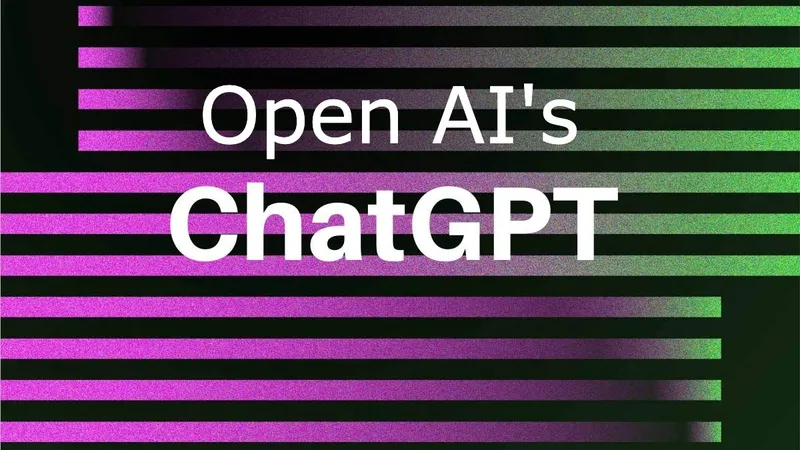Ethical implications of ChatGPT: Misinformation, manipulation and biases
Transparently communicating the limitations of ChatGPT and providing clear disclaimers when interacting with users can foster trust and accountability.
ChatGPT, an AI generative tool powered by multi-modal large language models like 's GPT-4, has arrived as a breakthrough in natural language processing and conversational AI.
It helps write essays, do research, write codes, draft emails, translate languages, and can even give advice on certain topics.
However, many think ChatGPT may have crossed into human territory. While these generative AI models offer tremendous potential, they also raise important ethical considerations.
This article explores the ethical implications of ChatGPT for language processing, highlighting key areas of concern and why such models need to have oversight.
Bias and fairness
Language models like ChatGPT train on vast amounts of data, however, there can be bias present in the data itself and that can influence the generative AI tool's responses.
This poses challenges when it comes to fairness as the model may inadvertently perpetuate or amplify biases in its generated content.
Awareness of these biases and efforts to mitigate them through diverse and representative training data is crucial.

Misinformation
ChatGPT can generate responses that resemble factual information, but it may not always guarantee accuracy.
Stack Overflow, a popular coding website, has temporarily banned ChatGPT. The chatbot uses a complicated AI model to give convincing, but often incorrect answers to questions asked by humans.
The moderators of the site say that they have seen a surge of responses generated by ChatGPT, which is causing harm to the site and its users. The reason, the platform stated, is that the answers provided by ChatGPT are predominantly incorrect, but they look like they could be right and it's easy to produce them.
It is important to consider the potential for misinformation and verify the generated content from reliable sources before accepting it as true.
Responsible users should prioritise fact-checking and avoid relying solely on the model's output.
Harmful and inappropriate content
The uncritical use of ChatGPT without proper moderation can result in the generation of harmful or inappropriate content.
It is essential to implement robust content filtering and moderation mechanisms to prevent the dissemination of offensive, biased, or abusive language.
Human oversight and active monitoring are necessary to ensure the model's output aligns with ethical guidelines.
Privacy and data security
ChatGPT requires large amounts of data for training. However, the data may include sensitive or personal information.
Safeguarding user privacy and maintaining data security are critical considerations.
Responsible usage entails ensuring data protection measures, obtaining user consent, and adhering to applicable privacy regulations.

Manipulation and impersonation
ChatGPT's ability to mimic human-like responses can raise concerns about malicious use, such as impersonation or manipulation. AI can be both good and bad. If we can use AI to create fantastic essays, some may also use it to manipulate people.
This problem may get worse as generative AI becomes more common. This means that people who interact with AI chatbots may be at risk of being manipulated.
There is a need for clear guidelines regarding the use of these models for deceptive or harmful purposes. Transparency in disclosing the AI-generated nature of the content is essential to avoid misleading users.
Accountability and transparency
As language models become more sophisticated, it is crucial to establish accountability frameworks. Organisations and developers should take responsibility for the actions and consequences of AI-generated content.
In a joint open letter, nearly 1,500 technology leaders, including Elon Musk, are calling for a pause of six months in the development of artificial intelligence. The open letter, “Pause Giant AI Experiments: An Open Letter” is published on the website of the Future of Life Institute.
The letter calls for developers to work instead on making today’s AI systems “more accurate, safe, interpretable, transparent, robust, aligned, trustworthy, and loyal.”
“Even though recent months have seen AI labs locked in an out-of-control race to develop and deploy ever more powerful digital minds that no one—not even their creators—can understand, predict, or reliably control,” stated the letter
The idea is that AI development should be “planned for and managed with commensurate care and resources.” However, the authors of the letter say that this level of planning is not happening. This leads to AI systems that are out of control.
Transparently communicating the limitations of the model and providing clear disclaimers when interacting with users can foster trust and accountability.
Mitigating biases, ensuring accuracy, preventing the spread of misinformation, protecting user privacy, and promoting transparency are key steps toward responsible usage.
Edited by Kanishk Singh





